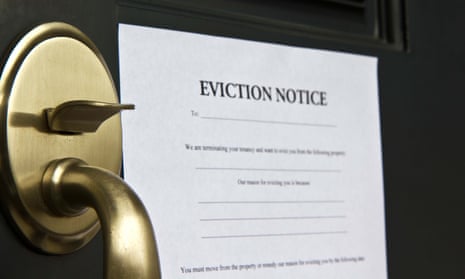A government plan to require landlords to evict tenants living in Britain illegally from their properties without a court order could lead to violent confrontations, the National Landlords’ Association has warned.
In a blow to the government, which wants to introduce the new measure as part of its campaign to show migrants that Britain’s “streets are not paved with gold”, the NLA warned that the changes could lead to tenants “doing very desperate things”.
Richard Lambert, the association’s chief executive, accused the government of introducing the plan “out of the blue” in response to the Calais migrant crisis after ministers announced a change in the law to allow landlords to evict such immigrants without a court order.
Under the forthcoming immigration bill, landlords will be expected to evict illegal immigrants soon after receiving a Home Office notice that their tenant no longer has the right to rent in the UK. In some circumstances landlords will be able to act without a court order.
Landlords who fail to check the immigration status of tenants could be fined or imprisoned for up to five years under a new criminal offence to be included in the bill. A “Right to Rent” scheme in which landlords check the immigration status of tenants, which is being piloted in the West Midlands, will be extended across the country. Under the scheme, landlords will be obliged to see evidence of a person’s right to remain in the UK by examining their passport or biometric residence permit.
Lambert told BBC Radio 4’s Today programme: “I am slightly concerned that we are breaking the 40-year-old principle that it has to be a court that ends a tenancy – take somebody out of their home – rather than giving that power to the executive. But we do need something that will work in progress … It is a welcome step forward.
“The Home Office expect that the tenant will comply with that. As we know, tenants don’t always comply with a court order or any order to leave a property when the tenancy is ended. Normally under a court process you’d be bringing in a bailiff. I do worry in the case of an illegal immigrant you possibly have then a despairing person in a desperate situation. That often leads to people doing very desperate things. Who knows? Barricading themselves in? There is the risk of defending themselves with all the force they can muster. It could put people in potential danger. We need to think through the consequences of the kind of system we are putting in place.”
The move by the government is designed to discourage migrants from leaving their country of origin by showing, according to Home Office minister James Brokenshire, that Britain is not a land of milk and honey. The home secretary, Theresa May, joined forces with her French counterpart, Bernard Cazeneuve, to send a signal to would-be migrants that they will not necessarily face a warm welcome.
In a joint article for the Sunday Telegraph, the two ministers wrote: “Ultimately, the long-term answer to this problem lies in reducing the number of migrants who are crossing into Europe from Africa. Many see Europe, and particularly Britain, as somewhere that offers the prospect of financial gain. This is not the case – our streets are not paved with gold.”
As part of the measures to make it difficult for illegal migrants to live in Britain, the communities secretary, Greg Clark,announced that the legislation wwould also create a blacklist of persistent rogue landlords and letting agents to allow councils to know where to concentrate their enforcement action. “We are determined to crack down on rogue landlords,” said Clark.
The government is to announce a tougher “fit and proper person” test for landlords of properties that have to be licensed to ensure they are safe for tenants. Rent repayment orders would also be extended to allow local authorities to claim back rent payments from landlords who abuse the housing benefit system by failing to maintain their property to a good standard and allowing councils to crack down on those who rent out unsafe accommodation by allowing the sharing of tenancy deposit protection.
Lambert praised the government for consulting landlords on some of the changes. But on the proposal to jail landlords who repeatedly fail to check on the immigration status of tenants and who fail to evict whose living in Britain illegally, he said: “This is the first we have heard of this very severe penalty. While I can see it is important to crack down on repeat offenders … it is quite surprising that it comes almost out of the blue. You do wonder how much it relates to the government wanting to be seen to be tough on migration given what is going on in Calais.”
Clark said the changes were designed to help landlords by saving them the costs of having to go to court if the Home Office serves a legal notice that the tenant no longer has the right to remain in Britain. “What we are doing is cracking down on those rogue landlords who make money out of illegal immigrants, exploiting vulnerable people and undermining the immigration system,” he told the Today programme. “To save them the cost and bureaucracy of having to go to court when the question to be resolved is very clear – whether or not that person is entitled legally to be in this country – the Home Office can serve a legal notice that makes it clear one way or another.”
But Clark admitted the landlord would have to go to court if a tenant refuses to leave after being served notice on the basis of the Home Office document. The landlord would have to seek a ground of possession order from the courts. “What you have done is save a prior court process,” he said.
